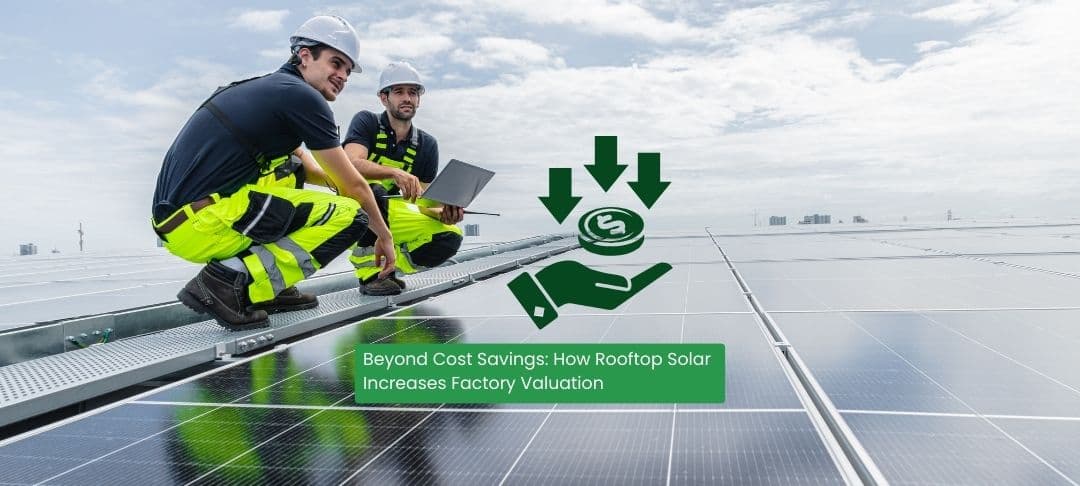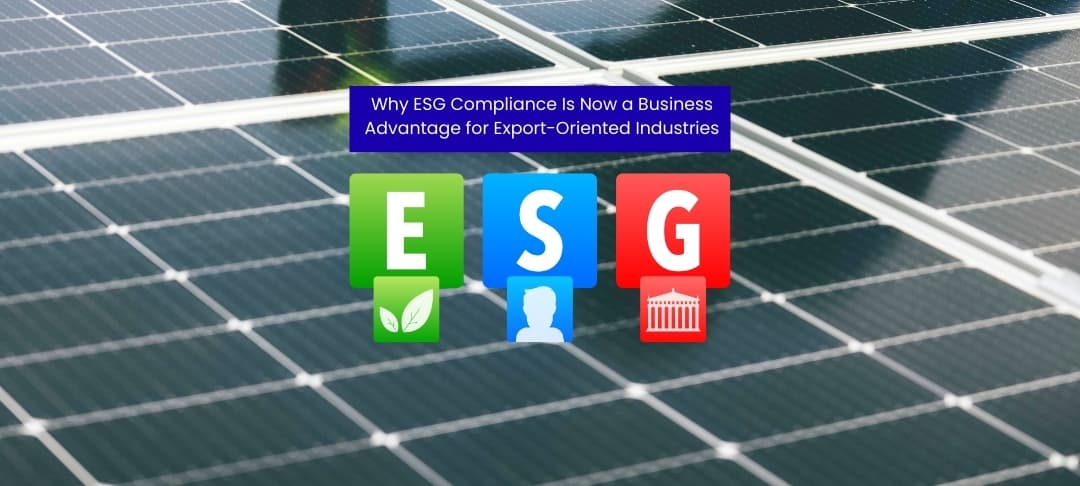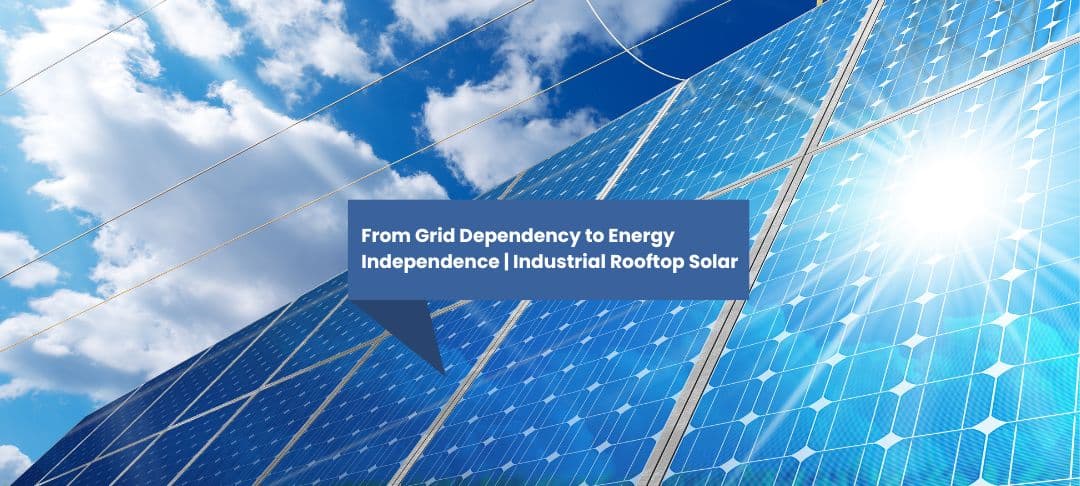How Solar Power Can Increase the Value of Your Property
Published at - March 16, 2025
Did you know, According to research, 67% of people looking for a new home factor the environment performance rating of the property? Homeowners and real estate investors are increasingly using solar power as a sustainable energy source. In addition to its financial and environmental advantages, solar energy has been demonstrated to dramatically raise property prices. Solar panel companies like Solaric can increase a property's marketability, lower long-term costs, and attract more purchasers. So, in this blog post, let’s take a look at how solar energy may raise the value of a property and why solar energy is a wise choice for both real estate investors and homeowners.
The Financial Advantages of Solar Power
A higher home's resale value
Homes with solar panels sell for more money than those without, according to numerous studies. Research by the Lawrence Berkeley National Laboratory found that comparable homes without solar panels sell for an average of 4.1% less than those with solar power systems. This implies that adding solar panels to a $300,000 house might raise its value by about $12,300. Buyers' willingness to pay more for energy-efficient homes that provide long-term utility savings is what is driving this value increase.
Reduced Energy Costs Draw Purchasers
Here is a lesser-known fact- solar energy systems can enable long-term savings on electricity bills for 25 years or more. The possibility of reduced electricity costs is one of the main benefits of solar-powered homes. Imagine you want to buy a property and you can save money on their monthly energy bills. You will be more confident to invest extra for a home with solar panels.
In Bangladesh, the cost of energy resources like electricity is on the rise. Adding solar panels to your property can certainly draw more customers, given the fact they can get a home where their bills will be saved immensely. Potential homeowners consider solar panels to be a long-term investment that will result in large financial savings because they can offset a sizable amount of electricity expenses.
Quicker Sales of Homes
Did you know that installing solar panels on your rental building could boost its marketability by around 25%? Homes with solar power systems typically sell faster than those without, in addition to commanding greater prices. According to research, homes with solar panels are less likely to be listed for sale because purchasers who are cost-conscious and environmentally sensitive give preference to properties with sustainable energy sources. Living in such a home can save tens and thousands of Taka. So, homeowners who want to maximise the value of their house while selling it quickly would especially benefit from this.
Tax Breaks and Funding Assistance
State and Federal Incentives
When homeowners engage in solar energy, they can benefit from several tax breaks and incentives that can reduce the initial cost of installation and increase the financial attraction of solar panels. A portion of the costs of solar installation can be written off by homeowners in the US under the federal Investment Tax Credit (ITC). The total cost of installing solar panels is also decreased by the additional incentives that many states provide, such as subsidies, rebates, and performance-based incentives (PBIs).
Benefits of Net Metering
Net metering programs, which enable homeowners to sell surplus electricity produced by their solar panels back to the grid, are available in many regions. For property owners, this can further lower energy expenses and bring in extra cash, increasing the appeal of solar-equipped homes to prospective purchasers.
Impact on the Environment and Society
Decreased Carbon Emissions
By lowering dependency on fossil fuels, solar-powered homes help to save the environment. For purchasers who value sustainability and the environment, this is an important consideration. Homeowners can show their dedication to lowering greenhouse gas emissions and encouraging the use of sustainable energy by installing solar panels.
Independence in Energy
Homeowners can reduce their reliance on conventional energy sources, which are prone to supply shortages and price swings, by installing solar electricity. Solar-powered homes are more appealing since energy independence shields homeowners from growing electricity bills and offers long-term security.
Things to Take Into Account Before Installing Solar Panels
Initial Expenses
Even if the cost of installing solar panels has decreased over time, homeowners still give careful thought to the initial outlay. Nonetheless, finance alternatives including power purchase agreements (PPAs), leasing schemes, and solar loans can increase the affordability and accessibility of solar energy.
Location of the Property and Roof Suitability
Solar panel efficiency is influenced by several variables, including local climate, direction, and roof condition. Solar energy systems work best in homes with lots of sunlight, but additional adjustments can be needed for homes with structural constraints or heavy shade.
Upkeep and Guarantee
Although homeowners should be aware of warranty coverage and potential repair expenses, solar panels typically require little maintenance. The majority of manufacturers provide 20–25-year guarantees, guaranteeing dependability and efficiency over the long run.
Calculate The Amount That Solar Panels Will Add to the Value of Your Property
Even if solar panels can be measured, it can still be difficult to determine the potential financial increase in a property's value. For instance, the location and potential energy savings of the installed system will affect the value rise. So, how do you evaluate the possible advantages? You may follow these points for an overview:
- Analyse the local market's demand.
- Examine previous rental and sales prices for real estate to find any patterns about solar panels.
- Examine local demand for solar-powered homes or lodgings to take buyer/tenant preferences into account.
- Look at how these rents or sale prices have gone up if you can.
- Look for properties that are comparable to yours in terms of size, location, features, and condition. Since the comparison serves as the foundation for the analysis, choosing the right one is crucial.
- Examine how much homes with and without solar panels sell for. Calculate how much electricity your solar panel setup could save.
- Based on the capacity of your solar panel installation and the local sun conditions, determine the possible yearly energy savings.
- To calculate the estimated gain in property value, multiply the annual energy savings by a factor. Depending on consumer tastes and market situations, this element may change.
- Find out how much your solar panel system will cost, including installation.
- Take into account the system's gradual deterioration.
- Determine how much a property with or without solar panels costs on average.
Finally, purchasing solar energy is not only a wise financial decision, but it is also an environmentally conscious one. Solar energy continues to be a wise investment for homeowners wishing to raise the resale value of their property because of government subsidies, net metering programs, and the growing demand for sustainable homes. It seems that solar-powered homes will only increase more in value in the real estate market as the trend toward renewable energy continues to grow.



